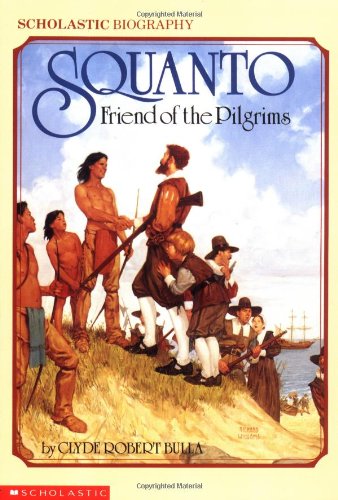

The Authors Club of Los Angeles named his “Benito” the outstanding juvenile book by a Southern California author in 1961. In 1985 he wrote "A Grain of Wheat: A Writer Begins," a short memoir aimed at children, and a few years ago moved back to Missouri.He also described the challenges faced by modern youths, most notably in “Shoeshine Girl” (1975), “The Chalk Box Kid” (1987) and “The Paint Brush Kid” (1999). After "The Donkey Cart" was accepted in 1946, he decided to focus on writing for children and moved to Los Angeles. With encouragement from a friend and fellow writer, he tried a children's book. Bulla moved to King City, Mo., and worked as a columnist and linotype operator for the weekly Tri-County News. In 1941 he wrote his only adult novel, "These Bright Young Dreams," but it made no money because the publisher went bankrupt. He began submitting stories to magazines and with modest success helped his family make ends meet during the Depression.

"Late at night, when the house was quiet, I sat up and wrote as long as I could stay awake," Mr. An enthusiastic reader who taught himself to play piano, he dropped out of high school to work on the family farm but finished his studies through correspondence courses. He attended a one-room school and knew from an early age that he wanted to be a writer. Bulla grew up on a farm near King City, Mo., the youngest of four children. He also described the challenges faced by modern youths, most notably in "Shoeshine Girl" (1975), "The Chalk Box Kid" (1987) and "The Paint Brush Kid" (1999).īorn in 1914, Mr.

He brought the past to life in "The Story of Valentine's Day," "Lincoln's Birthday," and "Washington's Birthday" explained basic scientific principles in "A Tree Is a Plant" and "What Makes a Shadow?" and in other books retold stories from the Bible and opera. "Squanto, Friend of the Pilgrims," "Pocahontas and the Strangers," "A Lion to Guard Us" and "Charlie's House" depicted Colonial America through the eyes of children. Using simple, straightforward language and fast-moving plots, he often spun his tales against a historical background. "I have to be very careful what I write about." "I'm reaching children at very impressionable age levels, third to sixth grade, 8 to 11 years old," he told the Los Angeles Times's Charles Hillinger in 1973. Bulla, who spent most of his adult life in Los Angeles, wrote more than 60 children's books, most fiction but some nonfiction, starting in 1946 with "The Donkey Cart." He was 93.Ĭlark Holdren of Sweeney-Phillips and Holdren Funeral Home in Warrensburg did not specify the cause of death.

LOS ANGELES - Clyde Robert Bulla, a prolific writer who captivated young readers for decades with his stories of Abraham Lincoln, George Washington, Pocahontas, and other historical figures, as well as tales of contemporary boys and girls, died Wednesday at his home in Warrensburg, Mo.


 0 kommentar(er)
0 kommentar(er)
